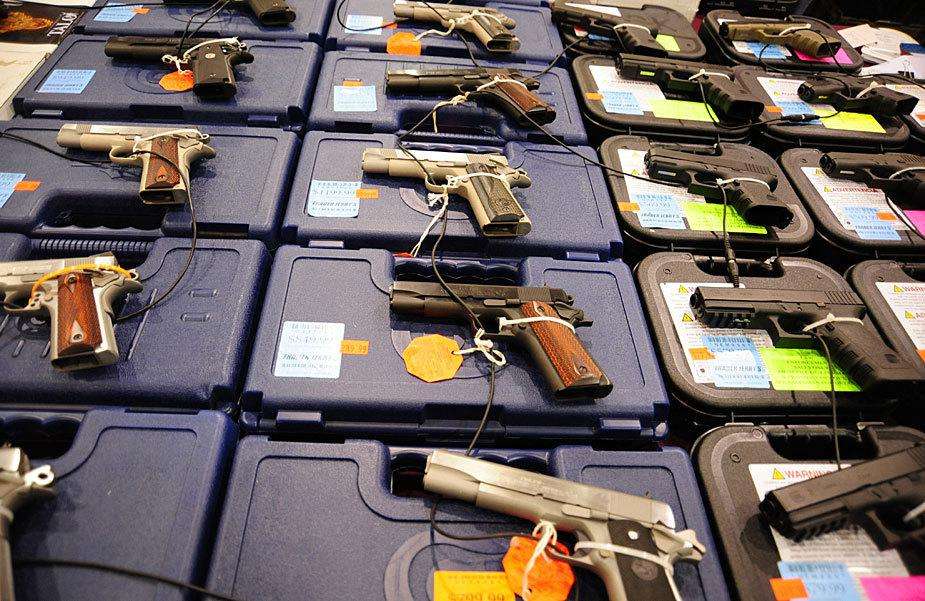This is Scientific American — 60-Second Science. I'm Christopher Intagliata.
There are thousands of gun shows in the U.S. each year—swap meet–type gatherings where the sellers' tables are covered in guns, ammunition, accessories, books.
Just as varied as the wares, are the laws that govern what's legal at the shows. California requires background checks for all buyers, even when purchasing guns from private citizens, rather than licensed dealers. Nevada does not.
So researchers treated the situation as an inadvertent experiment. They tracked gun deaths and injuries in California communities within a couple hours' drive of the Nevada border, before and after hundreds of gun shows in the two states.
They saw no increase in deaths or injuries in the weeks following California gun shows. But after shows in nearby Nevada, the number of hurt and killed citizens in those same California communities climbed 70 percent, compared to pre–gun show levels.

That translates to 30 additional deaths and injuries in those California zip-codes, during the decadelong study period. "If we extended this study nationwide, it's possible that the number of deaths and injuries associated with gun shows could really add up." Ellicott Matthay, an epidemiologist at U.C. Berkeley, who led the study.
Her team's analysis appears in the Annals of Internal Medicine.
Matthay says the results suggest California's stricter laws may be effective in preventing some gun-related injuries. But: "It also suggests that travel to less restrictive states may threaten the effectiveness of firearm laws within California."
But that situation may change. Because Nevada voters approved more restrictive background checks for private gun sales last year. The law has yet to be implemented. But if it is, it'll be a longer drive for gun buyers looking to skirt their local laws.
Thanks for listening for Scientific American — 60-Second Science Science. I'm Christopher Intagliata.












